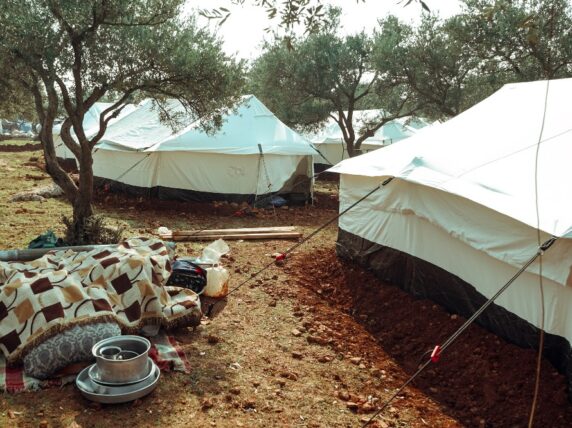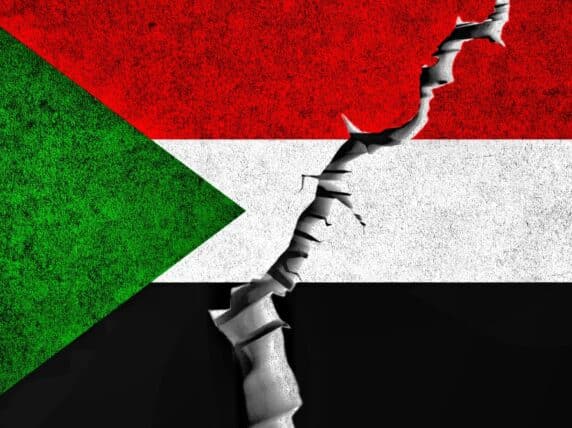5 ways NGOs are working with local partners to respond to Covid-19
Civil society organisations are playing an important role in the global effort to combat the Covid-19 pandemic and its impact on the world’s most vulnerable communities.
International NGOs are working in partnership with local civil society organisations, as well as national and local governments, to continually reassess and adapt how they best support their partners through this crisis.
Here are a few examples of how Bond members are collaborating with their in-country partners to strengthen the response to Covid-19.
1. Standing by communities while protecting staff
Amidst the operational and financial challenges of Covid-19, NGOs are committed to protecting key stakeholders while delivering vital services. Many organisations are letting their staff work from home across the world, while others have implemented measures to protect their frontline staff. Keeping frontline staff safe is a top priority for BRAC, as it keeps 41 maternity centres open in Bangladesh.
Toybox is continuing to feed communities while helping its partner’s staff adhere to social distancing measures. Conacmi, a partner of Toybox in Guatemala, is working with a local supermarket to develop a food voucher system, where community members exchange vouchers for basic food items.
Organisations are embracing technology to provide remote support to communities while keeping staff safe. Restless Development’s online series of Youth Power Global Solidarity Meetups is a secure space for the youth community to share opinions and promote global solidarity on Covid-19. The #FeelingRestless series also gives young people practical advice on how to stay safe and well during the pandemic.
2. Listening to partners and capturing data for rapid assessment
INGOs are listening to their in-country partners and utilising their expertise to identify risks and opportunities for supporting communities. Many are doing rapid assessments by regularly communicating with local partners to better understand communities’ particular situations and challenges in light of the pandemic.
Motivation‘s teams in India and Africa have reached out to more than 400 disabled people so far, assessing their immediate and longer-term needs. By listening to problems and fears presented by the pandemic, they can put their inclusion expertise to use to help people survive Covid-19 and recover faster from its impact. This includes partnering with hospitals and health centres to provide urinary care products, sanitation items and basic provisions to the most vulnerable.
Subscribe to our newsletter
Our weekly email newsletter, Network News, is an indispensable weekly digest of the latest updates on funding, jobs, resources, news and learning opportunities in the international development sector.
Get Network NewsRestless Development is training youth in data capture and research methods to collect young people’s insights on the effects of coronavirus on their communities to inform future programming. INTRAC is liaising with capacity development providers in its network to assess how best to support organisations to cope with change.
3. Creatively adapting programmes
Informed by their rapid assessments, many INGOs are adapting their programming within the restrictions posed by Covid-19 Some NGOs are backed by donors who are increasing the flexibility of their funding to allow organisations to use their money differently and pivot activities.
Action Against Hunger is working with the Ministry of Health in Somalia to ensure vital information on preventative measures, such as handwashing, is reaching vulnerable communities. This includes radio announcements, educational leaflets, banners and text messages to mobile phones.
Sightsavers is piloting innovative initiatives organised by teams on the ground to support Covid-19 efforts, based on gaps and needs identified by their partners. They are looking to adapt health programmes to do this, for example mobilising an existing network of trusted community volunteers and updating behavioural change messages so they apply to Covid-19, as well as the diseases they treat. In India, In India, Sightsavers and partners are using an identification system called the UIDAI to identify people with disabilities who are particularly vulnerable to the virus, and offering support.
Integrity Action, working closely with its partners, is adapting its programmes and providing guidance and support to move community integrity-building and engagement programmes online. Integrity Action will be helping its partner organisations share learning between projects in different communities and countries.
While power dynamics exist between INGO head offices and local partner organisations, INGOs must remain flexible and create space for open dialogue with partners to change results frameworks and decide new outcomes.
4. Deploying emergency responses and harnessing existing knowledge on health emergencies
NGOs are tapping into their wealth of knowledge in dealing with health emergencies, such as Ebola, Zika and cholera, to fight Covid-19. Tearfund and World Vision are leveraging their vast experience from the Ebola outbreak, and lessons learned from Zika and the worldwide H1N1 pandemic. They are collaborating with local partners and faith leaders to broadcast messages of hope on radio stations. They are also using bulk text messages to communicate with congregations while observing social distancing measures to prevent large gatherings.
Millions of people globally don’t have access to basic hand washing facilities, clean water or soap. Wateraid and Oxfam are scaling up their programmes in water, sanitation and hygiene (WASH) with their partners. This includes increasing access to handwashing stations and soap, and delivering awareness-raising campaigns to curtail the virus’s spread.
Islamic Relief is working closely with their partners to provide health and hygiene support to vulnerable people around the world. Their teams will be running health clinics and are collaborating with local governments to identify where healthcare capacity is low.
5. Supporting the most vulnerable groups
People with disabilities and vulnerable groups are often left behind in emergencies. Many organisations are prioritising their inclusion within the Covid-19 response.
Age International is calling for the UK government and humanitarian organisations to protect older people, who are most at risk, especially in refugee camps such as Cox’s Bazaar. The organisation is coordinating with local partners in Bangladesh to support older Rohingya refugees to follow guidance on maintaining hygiene and provide access to “Age-Friendly Spaces” where they have installed handwashing points.
Bond’s Disability and Development Group is mobilising NGOs to produce guidance on how to ensure people with disabilities are included in INGOs’ efforts. The group is asking INGOs to consult directly with people living with disabilities to ensure their activities are accessible to people with a range of impairments. Where INGOs can’t access people with disabilities, they are relying on their partnerships with local organisations.
We want to hear from you: what are you interested in knowing about NGOs’ response to Covid-19? Let us know by getting in touch.
Category
News & Views



